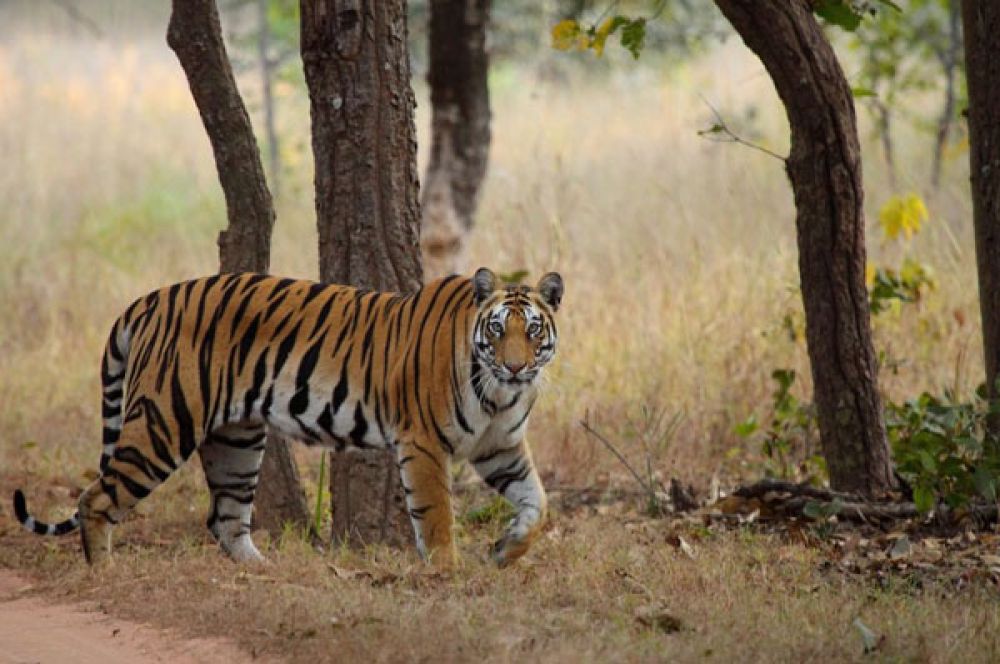

Bandhavgarh National Park, situated in the Umaria district of Madhya Pradesh, India, has a long history intertwined with nature and wildlife. It was once the hunting preserve of the Maharajas of Rewa, and its storied past includes the legend of Lord Rama, who gifted it to his brother Lakshmana, from where it derives its name 'Bandhav' meaning 'brother' and 'Garh' meaning 'fort'.
The park was used as a game reserve by the royalty and their guests until it was declared a national park in 1968. The real potential for tourism began in the 1980s, with the park's designation as a tiger reserve under Project Tiger in 1993, which put it on the map as a critical habitat for the Bengal tiger conservation.
The Khitauli Zone is one of the three core zones of Bandhavgarh National Park, along with Tala and Magdhi, and has been gaining popularity among tourists because of its high tiger sightseeing probability and rich biodiversity.
With a focus on wildlife conservation and sustainable tourism, the authorities have managed tourism in a way that minimizes human impact while maximizing visitor experiences. The zone offers Jeep safaris, which are the preferred mode for tourists to explore the wilderness closely and safely.
Eco-tourism initiatives have also taken root in the area, promoting environmental awareness and supporting local communities. Many resorts and lodges around the park follow eco-friendly practices, and some even offer guided walking tours and tribal dance performances to showcase local culture.
Recent trends in tourism have seen an increase in wildlife photography enthusiasts and nature lovers visiting Khitauli. The rise of social media has contributed to Bandhavgarh's growing popularity as visitors share their experiences online, attracting even more tourists.
A visit to the Khitauli Zone is often combined with excursions to the Bandhavgarh Fort, located inside the park, believed to be some 2000 years old, and the adjacent villages which offer a peek into the region's culture and traditions.
In response to the COVID-19 pandemic, stringent protocols were introduced to ensure the safety of tourists and staff, which includes limited safari vehicle entries to prevent crowding and mandatory health checks.
Tourism in the Khitauli Zone continues to flourish by adapting to the changing demands of visitors and the imperative need for conservation. The future holds a promise of continued adventure and exploration in this vital bastion of Indian wildlife.